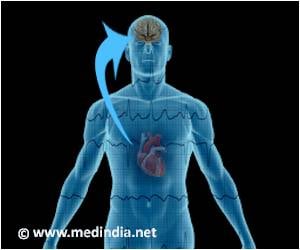Intracerebral hemorrhage is a type of stroke caused by bleeding within the brain. TGF-β1 is a protein that activates the immune system-mediated damage after a stroke.

‘The activation of transforming growth factor beta 1 (TGF-β1) in the brain reduced inflammatory signals and improved recovery from stroke.’





In the JCI, work from Laura Sansing's lab at Yale School of Medicine examined the pathways in the brain that drive injury-producing inflammation. They have identified that the protein TGF-β1 plays a pivotal role in activating immune system-mediated damage after intracerebral hemorrhage.In a mouse model, they observed that intracerebral hemorrhage-driven inflammation began to clear up at the same time as the TGF-β1 pathway was activated in local immune cells.
Treating mice with TGF-β1 immediately after the initial injury reduced pro-inflammatory signals and improved motor function compared to untreated mice.
In a patient population, they also observed that higher bloodstream levels of TGF-β1 in the first 3 days following intracerebral hemorrhage predicted better outcomes 3 months into recovery.
Together, these results suggest that targeting the TGF-β1 pathway may have protective effects in individuals recovering from stroke and brain injury.
Advertisement
Source-Eurekalert















